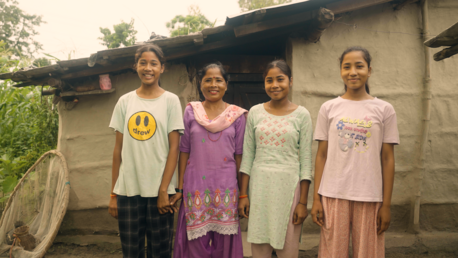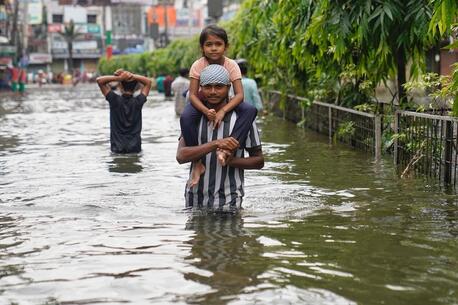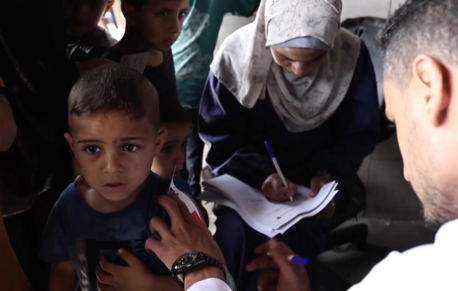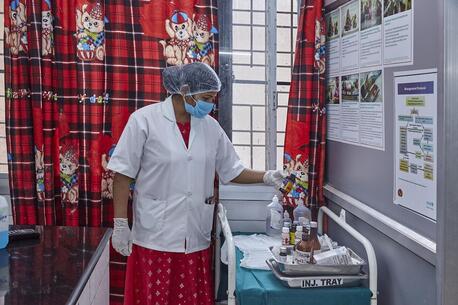
One Mother’s Journey to Reclaim Her Life from Sickle Cell Disease
With a donation from Eli Lilly and Company, UNICEF is working to strengthen under-resourced health systems around the world to provide better outcomes for children and family members living with noncommunicable diseases including sickle cell disease.
Sickle cell disease is a group of inherited disorders that affect the shape of red blood cells. The misshapen cells can block small blood vessels and impede blood flow, restricting the amount of oxygen in the blood stream. Every year, about 300,000 new cases of sickle cell are diagnosed globally, contributing to significant loss of life and strain to fragile health systems in low- and middle-income countries. Like most non-communicable diseases (NCDs), sickle cell can be managed and treated. But left untreated, it can be deadly.
Somati Tharu, the mother of three young daughters in Surkhet, Nepal, was diagnosed with sickle cell disease at age 29. What follows is the story of resilience, empowerment and strength for herself and her family.
Watch the video:
NCDs like sickle cell impact children, families and communities in various ways, straining community resources and affecting overall well-being and productivity. Children with sickle cell disease have a significantly reduced life expectancy, often 20 to 30 years less than the healthy population. Families face significant economic burdens due to health care expenses and loss of income, while children experience disrupted education and psychological distress.
Described as the “invisible epidemic,” NCDs are responsible for 70 percent of annual deaths globally. NCDs are a growing threat to children and adolescents, undermining their right to health, nutrition, education and play. Each year, about 1 million people under 20 die from treatable NCDs.
The time to combat NCDs is now
Historically, global health efforts have focused on combatting infectious diseases. This has left health systems and public health responses ill-prepared to detect and provide long-term treatment and care required for NCDs, also known as chronic diseases, in childhood, adolescence and beyond.
As a result, many children and adolescents in low- and middle-income countries lack access to lifesaving treatments, leading to premature and preventable deaths. Early detection and treatment are key to providing better outcomes for children with NCDs.
A way forward
UNICEF is committed to investing in communities in fragile settings and equipping frontline workers with the tools, technology, training and knowledge they need to improve the quality, efficiency and accessibility of local health systems to create long-term, scalable, sustainable change.
Somati’s SCD success story is one of many in Nepal, thanks to support from UNICEF and partners.
Children and families with NCDs require comprehensive health care, and UNICEF is working with governments, partners and donors, like Eli Lilly and Company, to strengthen primary health systems to support these children.
Donations from Lilly will go directly to the U.S. Fund for UNICEF, the tax-exempt organization that supports UNICEF’s global work.
HOW TO HELP
There are many ways to make a difference
War, famine, poverty, natural disasters — threats to the world's children keep coming. But UNICEF won't stop working to keep children healthy and safe.
UNICEF works in over 190 countries and territories — more places than any other children's organization. UNICEF has the world's largest humanitarian warehouse and, when disaster strikes, can get supplies almost anywhere within 72 hours. Constantly innovating, always advocating for a better world for children, UNICEF works to ensure that every child can grow up healthy, educated, protected and respected.
Would you like to help give all children the opportunity to reach their full potential? There are many ways to get involved.





